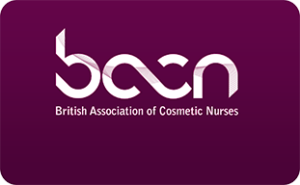A TCA (trichloroacetic acid) peel is a chemical skin peel. The depth of skin peeled during the treatment can be adjusted according to the strength of the acid used (15%, 20%, 25% etc.)
A TCA peel above 10% is a medical grade peel and should not be performed by non medically–qualified individuals. This is because it is a medium–depth to deep peel (depending on the strength of acid used) meaning it has the capability to pass beyond the epidermis (the outermost layer of skin) and even potentially to the top of the papillary dermis (part of the dermis; the next layer of skin after the epidermis). It is therefore a procedure that should be performed in a controlled environment, by trained medical professionals (a nurse or doctor).
It will help improve shallow wrinkles and help to smooth the skin. There will be new collagen (the protein which gives skin its firmness) formed within the treated skin. Superficial pigmentation can also be tackled with TCA. Even abnormal cells within the superficial layers that may go on to form serious problems in the future (actinic keratoses etc) can be effectively removed with the appropriate concentration of TCA.
If a stronger TCA peel is performed (20% – 25%, or a combined TCA peel) results will be immediate after one session. Weaker strengths may require a course of 3–4, followed by maintenance every few months.
Environmental factors such as UV damage, dehydration and pollutants are a constant strain on your skin. Therefore, performing a procedure like this only once is like going to the gym only once. TCA peels are a slightly heavier procedure and should be performed (depending on strength) a couple of times a year for optimal benefits. If a mild TCA is used, perhaps 3–4 times a year.
TCA is a medical grade product and is safe if used by appropriately trained hands. As with any procedure, there are potential side effects, such as post–inflammatory hyperpigmentation, prolonged redness, cold sore virus infection, post–procedure contact irritant dermatitis, and even infection and scarring. But if used by trained medical professionals, these risks are minimal. Remember, this is a medical procedure, not a beauty salon procedure.
No, TCA peels are beneficial for all types of skin. However, caution must be used when applying TCA to darker skin types and the treatment should
only be carried out by a doctor in this case. The act of peeling the skin on a regular basis encourages new cell turnover and in the long–term brings
about a process known as ‘neocollagenesis’ and collagen remodelling. In short, this means your skin will be tighter, smoother, free of pigmentation and have a healthy glow. An appropriate at–home skincare regime can be used to maintain the results. Topical retinoids such as 0.3% or 0.5% retinol, or retinaldehyde, work well to continue the benefits of peeling. Your practitioner, nurse or doctor can help you to choose the most appropriate
maintenance regime for your skin.
TCA peels are beneficial for mild boxcar acne scarring, or mild rolling scars. Ice pick scars need a special type of medical procedure called TCA
CROSS. TCA peels will lead to a mild improvement in acne scar, but for substantial improvement of acne scars, more invasive procedures such as laser resurfacing are required which is not provided at EMA. It is important to remember that acne scarring is tough to treat and virtually impossible to completely remove; it can only be improved. Managing acne effectively in its early stages can help prevent scarring.





Independent Medical Aesthetics Clinic specialising in Facial Aesthetics and Skin Care. At EMA, our goal is to make you look and feel the absolute best version of yourself by providing a comprehensive range of minimally invasive and non-surgical treatments.